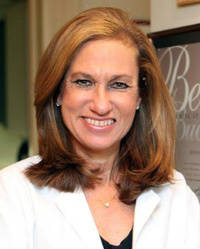Interview: Dr. Gwen Korovin Discusses the Emotional Needs of Singers

Gwen Korovin, MD, is a leading Ear, Nose and Throat doctor who specializes in treating vocal problems. Her patients include many of Broadway’s top actors and singers, as well as a long list of famous singers in pop and rock n’ roll. (read more about Dr. Korovin’s New York Vocal Care practice)
Dr. Korovin has closely studied the ways emotional issues can inhibit professional vocalists. Here, she talks about how singers and actors can be put under tremendous stress by an entertainment business attitude that “the show must go on” no matter what.
Do some singers completely lose their voice due to stage fright?
Yes, absolutely. When it happens, I first look to confirm that the performer has not injured his or her vocal folds. In many cases there isn’t any clear medical problem. Sometimes the performer’s muscle tension simply becomes so great that they can’t sing or speak. We used to call it functional voice disorder – you look at their folds and they look fine, but muscles aren’t working. The best way to get them functioning again is often to refer them to a good voice therapist. Yoga, and acupuncture can also be helpful for reducing the underlying stress. Left untreated, “stage fright” can become a kind of viscous circle that can weaken the performer’s psyche and even their immune system. This can make them more prone to voice loss and a variety of illnesses.
Do you sometimes find that business people around performers are not as sympathetic as they need to be to voice issues?
They often just don’t have as good an understanding as they could. From their point of view, the show simply must go on. But it should not be at the cost of anyone’s health. Broadway performers, in particular, have to deal with a relentless 8 show a week schedule. Most of them are also doing exercise classes and voice classes all the time to help them sustain the workload. Producers need to be aware that most performers are pushing themselves very hard, and that sometimes they need time to rest their voices.
Do you find that many of the singers and actors who come to you for medical care are also trying alternative health approaches?
Yes, they often use alternative therapies. There’s certainly a place for that, but a voice professional needs to strike a balance. It’s important to see a physician practicing western medicine, because he or she can diagnose and treat serious conditions that alternative health treatments aren’t effective for.
Other than the basic pressure to keep on performing, do other emotional issues in performers lives effect their singing or speaking ability?
Yes. Vocal problems can arise due to the loss of a loved one, breaking up, family issues or some other traumatic event.
How many of the problems that upset singers are physical and how many emotional?
I see both scenarios all the time. In my practice, I spend a lot of time talking to people because I need to know what’s going on in their life. If you don’t know that it’s hard to diagnose the problem, hard to get to the root of it. You need to treat the whole person.
Given that some pop music singers perform in front of 60,000 people at a time, do they have different issues than Broadway singers?
Pop and rock and roll singers tend to get tired and dried out from all the travel. Their schedules are also very erratic. Young rock musicians sometimes perform every single night for long stretches, and do interviews before all their shows. It’s very stressful. In addition, the also have to stay around after the shows to do meet and greets instead of getting back to their rooms to rest, which is what they should be doing.
The voice care practice you originally came into treated Frank Sinatra and JFK. Are performers subjected to different stresses today than they were 20 or more years ago?
Yes – I think social media has created a lot of good and bad. Performers’ lives are exposed constantly on social media and they feel they have to be out there all the time. In the old days, that didn’t happen. Also, if you hiccup or make any other kind of mistake on stage, a video of it immediately gets out there. Even the way new talent gets discovered is now more pressureful. So many of our new pop star now come out of American Idol and other contest shows. It creates tremendous “one show pressure.”
You said performers are protective of their voices, but are some of them a bit careless about it?
I find that once they’ve had a problem, they’re far more careful. But younger people are often careless or simply don’t know how to take care of their voices. They also party too much.
Are some other doctors and voice coaches a bit alarmist?
Yes absolutely – and that’s the wrong way to handle a performer. You don’t want to make them more emotionally alarmed. To avoid that, you need to learn how to talk to a performer the right way.
Is being conservative the hardest thing sometimes when a performer is anxious for a fast resolution of a problem?
Yes it’s a serious challenge. But I work very hard to convince singers and actors that even though they may want an instant cure, the best solution to their problem is often simple voice rest.
Contact us
70 East 77th Street, Suite 1B | New York, NY 10075 | (212) 879-6630
